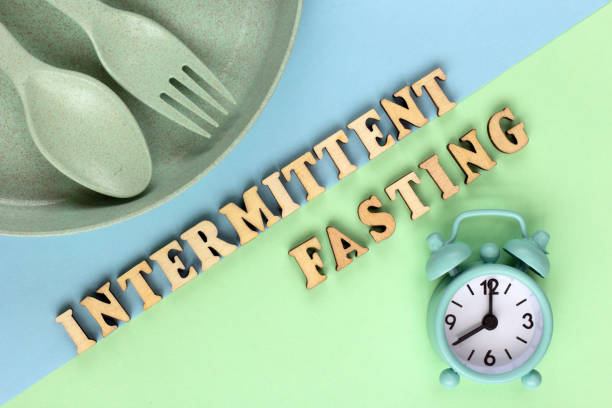
One of the health trends that has been buzzing nowadays is intermittent fasting. It is used by many in attempts to help lose weight, stabilize blood sugar, or even increase energy. Others claim that it is a miracle. Others do not detect much change and quit soon.
You have to understand the meaning and operation of intermittent fasting before attempting it. This guide enumerates the reasons as to why it is not taken like other diets. It also explains the reasons why good results are witnessed by some individuals but not by other people. The correct plan will allow you to find out whether it is effective or not.
What Is Intermittent Fasting?
Intermittent fasting implies that you alternate between fasting and eating in a day or week. You eat much of the same food, but your eating time is very much altered. Intermittent fasting does not just concentrate on the amount of calories in the body, as is the case in normal diets.
The 16/8 approach is the most widespread one. You eat no food during 16 hours and have all meals in an 8-hour window. A lot of individuals miss out on breakfast and just take two meals: lunch and dinner. There is 5:2 fasting. They normally consume 5 days in a week and reduce calories significantly (to very low levels) in two days. There are others who practice 24-hour fasts once or twice a week.
Intermittent fasting does not prescribe the kind of foods to take. You select what you want to eat, but you eat during your own fixed hours. Several individuals prefer it since they do not believe that they are under strict rules daily.
How Does Continuous Fasting Work?
During the fasting, no extra calories get into your body because the body uses stored energy. You do not eat, and thus your insulin level decreases. Reduced insulin levels assist your body in burning fats as energy. This offered fasting as a weight loss routine.
The cells are also affected by the practice of fasting. It demonstrates in some studies that it could induce cell repair and inhibit inflammation. According to some professionals, fasting can enable a person to reduce blood sugar and maintain good health of the heart. There is still some research that needs to happen, but initial results are promising in a lot of individuals.
Eating throughout the day makes your body construct excess energy in the form of fat. Once you cease to eat for several hours, your body comes into the mode of burning stored fat. It is an easy intervention that can make you shed weight, provided you consume healthy food within the eating window.
Why Do People Try Intermittent Fasting?

Intermittent fasting is loved as it is an easy feeling. You do not require some special meals or fancy supplements. You simply plan your meals and follow your eating time. This leaves most of the people free to eat freely as long as what they eat is just fine.
The busy people would prefer it because one of their meals is missed together with time. Others claim that they have a better concentration during the fasting hours. Some testify that they sleep better by quitting their snacks at night. Fasting is also perceived by many as a means of rebooting eating habits that are bad.
Fasting is now being viewed as a means of treating certain health ailments by doctors. Certain individuals whose sugar is elevated or resistant to insulin discover that fasting is beneficial to them. Others indulge in it as a way of reducing weight without losing the muscles. All people respond in different ways, thus yielding varied results.
Does Continuous Fasting Help With Weight Loss?
Many people lose weight through continuous fasting, but the outcome is related to your food intake. Your eating window and the junk food and big portions you eat therein may not make you shed anything. Fasting is effective only in case you are not stuffing yourself after the fast.
Experience indicates that during fasting, most people consume fewer food calories. Forgoing breakfast or a midnight snack reduces the daily intake without making an extra effort. You also learn to deal with hunger when you fast. You understand when it is time to eat and when you are simply snacking because of boredom.
There are individuals who discover that they adhere to fasting more than normal diets. This assists them to lose weight gradually and safely in months. Others quit on grounds of hunger or exhaustion. As with any plan, you have to seek a lifestyle that is ideal for your body and any lifestyle.
Other Potential Health Benefits
Fasting is popular because of other reasons besides loss of weight, although this is the most important. The study presented by other authors indicates that the fact of fasting leads to the positive alteration of the levels of sugar in the blood. Considerable fasting can cause a reduction in insulin resistance among patients with diabetes type 2. Studies have been conducted on the benefits of fasting to the brain as well. There exists some preliminary data in animals that fasting may preserve memory and learning.
Human beings state that they experience having a clear head when they fast, but this requires a broader study. Fasting is likely to reduce the levels of inflammation in the body. They claim that it may work to prevent chronic diseases. Nevertheless, physicians caution against perceiving fasting as some sort of a panacea to all illnesses. Healthy food and sport are the most important nowadays.
Ordinary Issues and Dangers

Since intermittent fasting is not applicable to all people. Others get a feeble or giddy feeling when they do not eat. Some people overfeed during their feeding period on the ground that they are too hungry. Food can reverse all weight loss and any health benefits. Individuals who have some health conditions are not supposed to fast without the consultation of the doctors. Fasting may be harmful to you in case of diabetes, low blood pressure, or eating disorders.
Pregnant or lactating women are not supposed to fast without the opinion of the doctor. During the first week, new fasters would experience a lot of hunger. The body must take some time to get used to it. Taking water, tea, or black coffee is beneficial. Others also prefer short fasting periods of 12 hours and then attempting 16 first.
Beginner’s Guide to Safe Intermittent Fasting
Begin gradually and select the style that would suit your everyday activity. The 12/12 method is the first one that many of the newcomers attempt to pair. They eat every 12 hours and fast for 12 hours. And when you start to feel good, you will be able to extend the fasting window to 14 or 16 hours. Pay attention to healthy food. Fasting is no good when one piles on plates that are filled with fries or sugar. Consume more protein, healthy fats, and fiber. These make you full, and they assist your body in fat burning.
Take water during the day to keep yourself hydrated. Herbal tea and black coffee are good as well, and avoid sugar and milk when you are fasting. Make fun meals so you do not feel denied. Sleep and have some form of light exercise when you feel well. Take note of your body. Rest at a time when you feel sick and lightheaded, sitting and chatting with the doctor. Fasting is fine as long as you do not mind being hungry and tired but rather healthy and happy.
Conclusion
His intermittent fasting is easy at first glance but requires good habits to become effective. It aids numerous individuals to achieve weight loss and regulate the levels of sugar. It can provide other health benefits as well. Fasting is not a magic procedure and will not correct the bad choices of foods. During your eating window, you have to consume healthy meals. Hydrate adequately, sleep tight, and choose the style that fits into your life. Begin with small paces and make adjustments where necessary.
By remaining patient, you should know whether fasting can actually work with you or not. Discuss fasting with a doctor beforehand in case you have issues regarding your health. Not every person is to be treated by fasting. Still, do not forget to complement it with smart food, movement, and good sleep to achieve the best outcomes.






